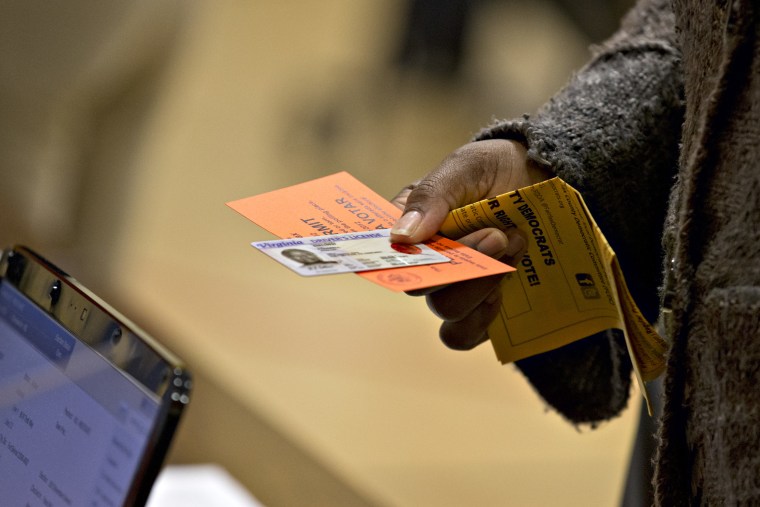On the heels of perennial red state Virginia turning blue for the second time in a row, State Sen. Bill Carrico, a Republican, has introduced a new bill to change the way Virginia's electoral votes are decided. And, big surprise, it helps the GOP.
Carrico's bill would end Virginia's winner-take-all method of allocating electoral votes and replace it with a system that doles out votes by congressional district, letting the winner of the most districts take the two extra votes. If this system had been in place in the last election, Mitt Romney, who won only 47% of all votes in the state, would have won 9 of its 13 electoral votes.
Carrico claims his plan is meant to give rural voters a greater impact, and that he's trying to "even the playing-field." But his plan gives rural voters disproportionate power compared to their urban and suburban counterparts, thanks in part to successful Republican gerrymandering.
Gov. Tom Corbett of Pennsylvania, a Republican, floated a similar plan in his state last year, which ultimately failed. Since the election, State Sen. Dominic Pileggi, also a Republican, introduced a new plan that splits the states electoral votes by percentage of the popular vote, rather than district. The new plan would have given 12 of Pennsylvania's 20 electoral votes to Obama.
Even Ohio Secretary of State Jon Husted, who suffered intense criticism during the 2012 election season after his repeated attempts to restrict access to the polls, floated the idea of a proportional election system too. Why? By Husted's reasoning, if Ohio isn't “a winner-take-all state, and you would not have another elections controversy about Ohio because we would not matter as much anymore.”
All states except Maine and Nebraska award all their electoral votes to the winner of the popular vote.
What these proposals have in common is clear: they come from Republicans in states that continue to trend towards Democratic presidential candidates. A proportional electoral system might have some value if adopted nationally, but when done exclusively in Republican states, the only thing it will do is dilute the power of Democratic voters.
